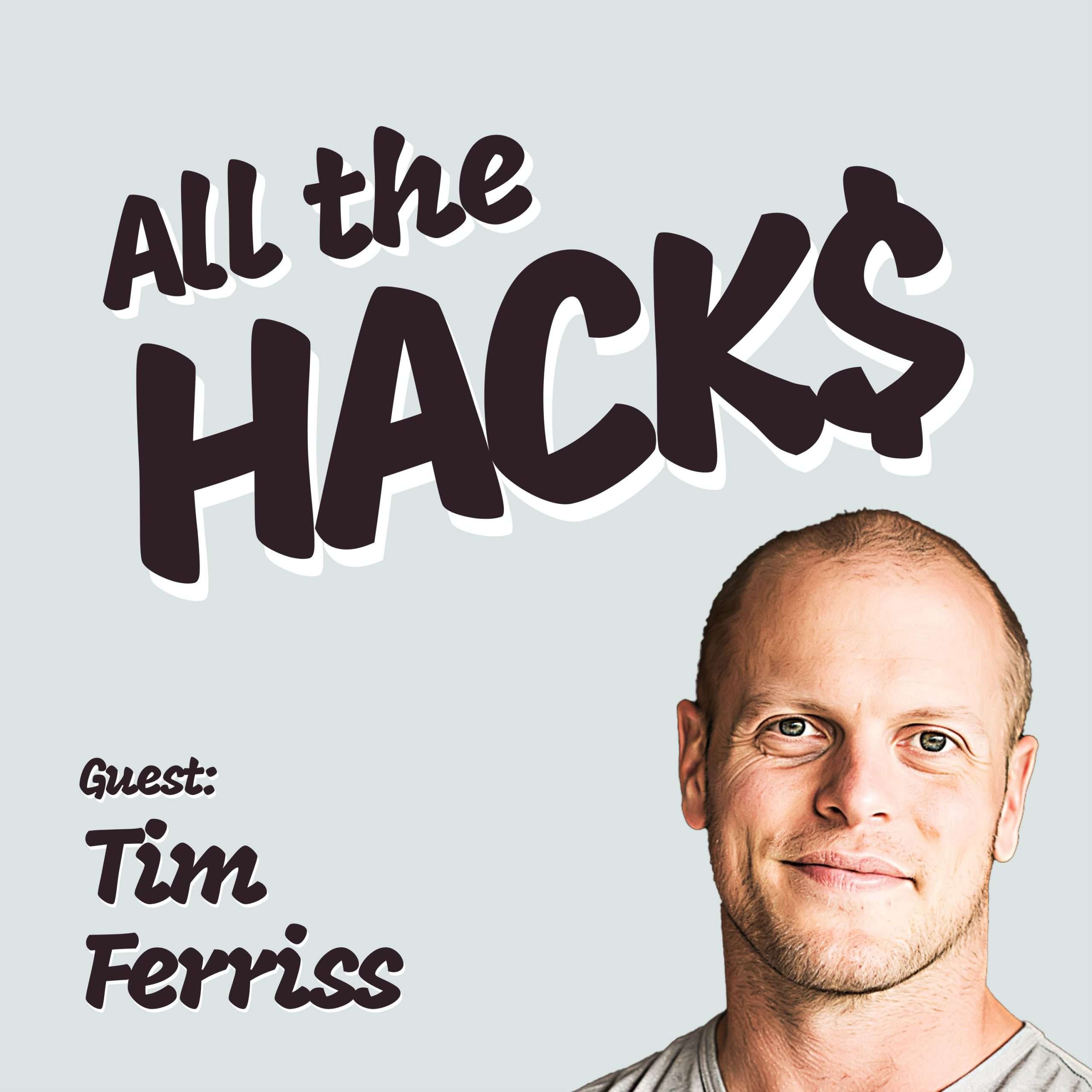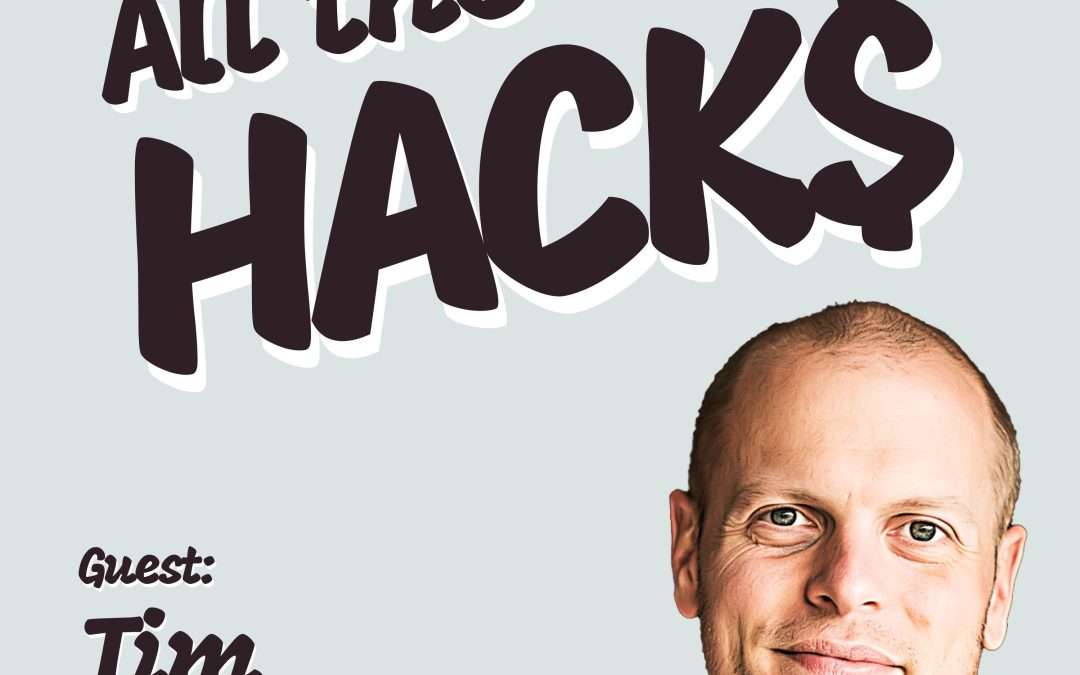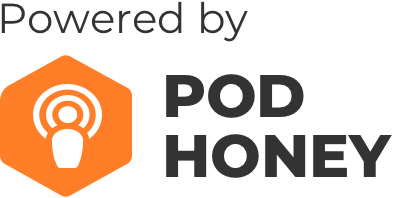
Best-selling author Tim Ferriss chats with Chris about how he built and grew his podcast (The Tim Ferriss Show) to 700+ Million Downloads. They give a deep inside look at how their podcasts got started and how everything comes together each week (equipment, production, interviews and more). They also discuss a number of topics relevant outside of podcasting, like interviewing skills, marketing, branding and storytelling.
Tim Ferriss (@tferriss) has been listed as one of Fast Company’s “Most Innovative Business People.” He is an early-stage technology investor/advisor (Uber, Facebook, Shopify, Duolingo, Alibaba, and 50+ others) and the author of five #1 New York Times and Wall Street Journal bestsellers, including The 4-Hour Workweek and Tools of Titans: The Tactics, Routines, and Habits of Billionaires, Icons, and World-Class Performers. The Observer and other media have called Tim “the Oprah of audio” due to the influence of The Tim Ferriss Show podcast, which is the first business/interview podcast to exceed 100 million downloads. It has now exceeded 700 million downloads.
Full show notes available at: https://www.allthehacks.com/podcasting-tim-ferriss
Selected Links From The Episode
Connect with Tim Ferriss: Twitter | Instagram | Blog | Podcast | 5-Bullet Friday Newsletter
Tim’s Resources on Podcasting: 2016 Blog Post | Interview with Rolf Potts
Podcast Recording Platforms: Zencastr | SquadCast | Riverside.fm | QuickTime | Apple
Other Podcasting Tools: Descript | Chartable
Podcasting Equipment
- Logitech BRIO Ultra HD Webcam | Amazon
- Audio-Technica ATR2100x-USB Cardioid Dynamic Microphone | Amazon
- Audio-Technica ATR2500x-USB Cardioid Condenser Microphone | Amazon
- Apple AirPods with Charging Case | Amazon
- Zoom H6 6-Track Portable Recorder | Amazon
- XLR Cables | Amazon
- Shure SM58 Handheld Dynamic Vocal Microphone | Amazon
Tim’s Books
- The 4-Hour Workweek: Escape 9-5, Live Anywhere, and Join the New Rich
- The 4-Hour Body: An Uncommon Guide to Rapid Fat Loss, Incredible Sex, and Becoming Superhuman
- The 4-Hour Chef: The Simple Path to Cooking Like a Pro, Learning Anything, and Living the Good Life
- Tools of Titans: The Tactics, Routines, and Habits of Billionaires, Icons, and World-Class Performers
- Tribe of Mentors: Short Life Advice from the Best in the World
Tim Ferriss Show Episodes:
- #1 with Kevin Rose
- #22 Ed Catmull, President of Pixar
- #418 Esther Perel
- #444 Hugh Jackman
- #60 Arnold Schwarzenegger
- #349 LeBron James
- #506 Balaji Srinivasan
- #283 Tim Urban
- #25, 26 & 27: Kevin Kelly
- #40 Andrew Zimmern
- #399 Adam Grant
- #281 Stewart Brand
Other Books and Blog Posts:
- The Psychology of Money: Timeless Lessons on Wealth, Greed, and Happiness by Morgan Housel
- Finding the One Decision That Removes 100 Decisions (or, Why I’m Reading No New Books in 2020) | Tim Ferriss
- 4 Tools to Use Now That Facebook Analytics is Gone | Ad Espresso
- The Tail End | Wait But Why
- The 22 Immutable Laws of Marketing by Al Ries and Jack Trout | Amazon
- 1,000 True Fans | The Technium
- This Satirical TikToker is Generating Millions of Dollars in EMV for World-Renowned Brands by Andrew Chen | Captiv8
- 80/20 Rule (Pareto Principle) | Investopedia
Other Podcasts:
- This American Life
- The Joe Rogan Experience | Spotify
- ID10T (Formerly Nerdist) with Chris Hardwick | Apple Podcasts
- WTF with Marc Maron Podcast
- WNYC
- Pushkin Podcasts
- The Stacking Benjamins Podcast
- Armchair Expert
- It’s Official: ‘Call Her Daddy’ is Exclusive | Quill
Full Show Notes
Who is Chris Hutchins, and how many episodes of his new podcast, All the Hacks, does he have under his belt thus far? [2:26]
A few choice pieces of advice anyone should consider when aspiring to start a podcast: you don’t have to commit forever, only do this if you’d do it for free, and don’t worry about how big (or small) your audience is. [4:30]
Don’t commit to forever, but start with a reasonable number of episodes to aim for (Tim chose six). If you don’t love the direction it’s going, change direction until you do. Choose a game you can win. [6:50]
Expect technical SNAFUs. Always have a backup plan. Better: have several. “Two is one, and one is none.” [11:40]
Is it still early in the days of podcasting and ripe with opportunity, or is it too crowded and people should consider new mediums for content? [12:55]
Why did Chris want to start a podcast, and what has made it worthwhile to continue? [17:04]
Gear Tim uses and why most of his podcast conversations are done remotely. [20:27]
How many technical difficulties would Tim endure before just rescheduling an interview? What precautions does Tim take to make this less likely? [23:04]
An easy way to test if your remote guest’s external mic is selected. [27:44]
Tim once advised podcasters against recording on video, but he’s changed my tune. What are the pros and cons? [27:26]
How different did his operation look when Tim was just getting started, and how has it evolved over time with the addition of metrics for monetization and staff to assist with production? [32:24]
What Chris has considered when weighing the rewards of monetization versus its costs, and Tim’s two cents’ worth on sponsorship best practices and options available. (Bonus: why Tim’s books aren’t available in paperback.) [37:03]
Can’t get big-name guests? Prioritize getting good guests even if they’re not household names. People like good content more than they like bad content with a fancy name (and you’ll probably like not having to get through a phalanx of publicists and lawyers and managers for a year to get that “famous” but potentially less interesting guest). [48:29]
How Tim has found guests from the very beginning. [52:18]
Tim’s thoughts on Chris’ interview with Leigh Rowan (note: not a household name, but an incredible guest who brought his A game). [53:53]
You may not be able to “fix” a bad guest no matter how well-practiced you are as an interviewer. But you can always record long and edit liberally. [55:26]
Questions Tim asks and conversations he’ll have with guests to put them at ease and get them to a place where they can trust the process. [57:09]
Why Tim finds Twitter to be an excellent, low-risk way to source guests. But there are right ways and wrong ways to go about it. [1:01:20]
Illustrating the importance of technical redundancy, Chris confesses that he had to re-record the interview with Leigh Rowan from scratch. At least it was a lesson learned on day one. [1:07:52]
The value of reading transcripts (and, perhaps more painfully, audience feedback on social media) of your interviews early on in order to improve, as well as other methods of soliciting torture from select friends for personal development. [1:10:00]
Why becoming a better interviewer is really becoming your best self as an interviewer. Remember: what’s worked for Joe Rogan or James Lipton or Larry King may not work for you. [1:17:04]
How long does Tim spend on prep prior to an interview? What are some helpful shortcuts and processes to squeeze the most juice out of this time? [1:21:22]
Has Tim ever done too much research before an interview — to the point that the ensuing conversation was devoid of any meaningful surprises? [1:27:15]
What might cause Tim to push pause on publishing an interview, and how would he break the news diplomatically to the guest? What efforts can be made to salvage something useful from the experience for both parties? [1:30:13]
Does Tim always read a guest’s new book before he interviews them? [1:32:06]
Has Tim ever had to pause during an interview to regroup and replan its direction? What steps do I take to make sure the guest and I sound as good as possible? [1:34:31]
How did Tim build an understanding of his guests, and what did he learn about relating to an audience from Wait But Why‘s Tim Urban? [1:38:37]
Tip: How to avoid getting your AirPods case mixed up with a significant other/family member/roommate who lives with you. [1:43:58]
Does Tim pay attention to number of podcast downloads and other listener-quantifying metrics? What would motivate extra scrutiny of those numbers? [1:45:19]
Why you probably want to funnel your listeners to your own website instead of something like a Facebook page that uses algorithims you can’t control. [1:50:00]
Is growth as important as creating good content? What are the most effective ways to grow an audience that will find that good content? [1:55:14]
Is there a point to putting audio-only content on a video platform like YouTube? While growth has no magic bullet and the tools are forever changing, here are some evergreen references that might help you find the anchor that will work for your needs. [2:01:00]
Want to be of the best service to yourself and your audience? Stop trying to please all of the people all of the time. Find the cadence, content, and frequency that fulfills you first. [2:04:35]
Someone might tune in to your podcast for a certain guest, but if they come back, it’s because of you. This being said, is it necessary to go out of your way to remind listeners that you exist in every episode? [2:08:15]
How can you make your good question a great question while making your guest sound even smarter and get your listeners personally invested in the conversation? [2:10:18]
What is one of Chris’ best investments? [2:13:05]
How (and why) did Tim make the transition from being “The 4-Hour Guy” to the host of The Tim Ferriss Show (rather than starting something like The 4-Hour Podcast)? [2:14:11]
You have a personal brand (even if you’ve never tried to build one). But how do you know what it entails? [2:25:08]
To eliminate the bother of selling ads and securing sponsors, is it worth it to join a podcast network that promises to take care of monetization for you (for a hefty cut)? [2:27:50]
How does Tim handle a follow-up question if he’s thought of it well past the point it would make sense to fit it into the conversation? [2:36:52]
Does Tim have any tactics for getting introductions to potential guests from other people in my existing network? [2:38:33]
A question you can ask to improve your interviewing prowess (courtesy of Adam Grant). [2:40:18]
What kind of processes does Tim go through when he reassess the direction of the podcast after reaching a preestablished milestone? [2:42:27]
The time-saving power of batching recording sessions. [2:44:54]
Parting thoughts. [2:50:57]
Connect with All the Hacks
All the Hacks: Newsletter | Website | Facebook | Email
Chris Hutchins: Twitter | Instagram | Website | LinkedIn






